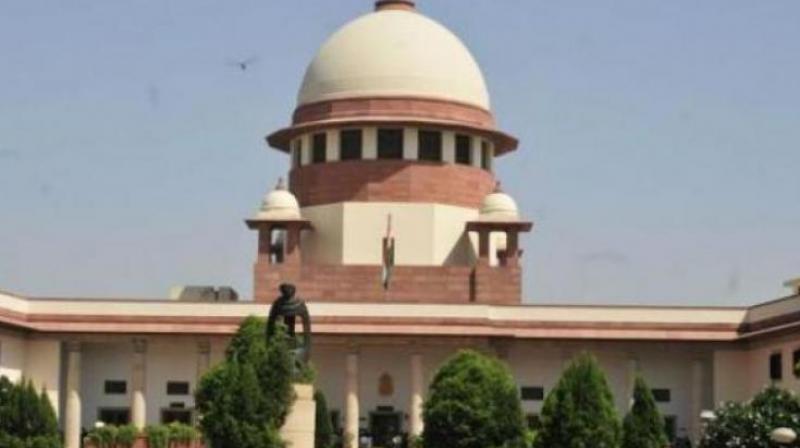Parliament can take a call on tainted netas, says Supreme Court
Asks House to frame law to keep criminals' away from polls.

New Delhi: The Supreme Court on Tuesday refused to direct the Election Commission to debar candidates with a serious criminal background from contesting elections and instead asked Parliament to enact suitable legislation to decriminalise the country’s polity. A five-judge Constitution Bench comprising Chief Justice Dipak Misra and Justices Rohinton Nariman, A.M. Khanwilkar, D.Y. Chandrachud and Indu Malhotra, however, directed that the criminal antecedents of all candidates seeking to contest elections must be made public through wide publicity in the media.
Writing the judgement disposing of the petitions filed by NGO Public Interest Foundation and others, the CJI said it would be mandatory for political parties fielding chargesheeted persons and contesting candidates to make known to the public their criminal background at least three times after the filing of nominations so that voters would have an informed choice before voting.
The CJI said on a perusal of the relevant articles in the Constitution, it was clear as crystal that disqualification for being chosen as a member of either House of Parliament and similarly disqualification for being chosen or being a member of the Legislative Assembly or Legislative Council of a state, the law had to be made by Parliament.
While criminalisation in politics is a bitter manifest truth, that is a “termite to the citadel of democracy”, the court cannot make the law. The court said: “In a multi-party democracy, where members are elected on party lines and are subject to party discipline, we recommend to Parliament to bring out a strong law whereby it is mandatory for political parties to revoke the membership of persons against whom charges are framed in heinous and grievous offences, and not set up such persons in elections, both for Parliament and the state Assemblies. This, in our attentive and plausible view, would go a long way in achieving decriminalisation of politics and usher in an era of immaculate, spotless, unsullied and virtuous constitutional democracy.”
The bench said substantial efforts have to be undertaken to cleanse the polluted stream of politics by prohibiting people with criminal antecedents so that they do not even conceive of the idea of entering politics. “We are sure, the law making wing of the democracy of this country will take it upon itself to cure the malignancy. We say so as such a malignancy is not incurable. It only depends upon the time and stage when one starts treating it; the sooner the better, before it becomes fatal to democracy. Thus, we part, leaving the future exercise to the wisdom of Parliament”, the bench added.
In a series of other directions, the bench said that each contesting candidate shall fill up the nomination form which must contain in bold letters the criminal cases pending against the candidate; if a candidate is contesting an election on the ticket of a particular party, he/she is required to inform the party about the criminal cases pending against him/her. The concerned political party shall be obligated to put up on its website the aforesaid information pertaining to candidates having criminal antecedents. The candidate and the concerned party shall issue a declaration in widely-circulated newspapers in the locality about the antecedents of the candidate and also give wide publicity in the electronic media.
The CJI said: “We have issued the aforesaid directions with immense anguish, for the Election Commission cannot deny a candidate to contest on the symbol of a party. A time has come that Parliament must make a law to ensure persons facing serious criminal cases do not enter the political stream.” The court said it was one thing to take cover under the presumption of innocence of the accused, but it was equally imperative that persons who enter public life and participate in lawmaking should be above any kind of serious criminal allegation. It is true that false cases are foisted on prospective candidates, but the same can be addressed by Parliament through appropriate legislation.
The bench said constitutional functionaries, who have taken the pledge to uphold constitutional principles, are charged with the responsibility of ensuring that the existing political framework does not get tainted with the evil of corruption. However, despite this mandate in the Constitution, India’s democracy, the world’s largest, has seen a steady increase in the level of criminalisation that has been creeping into the Indian polity.

